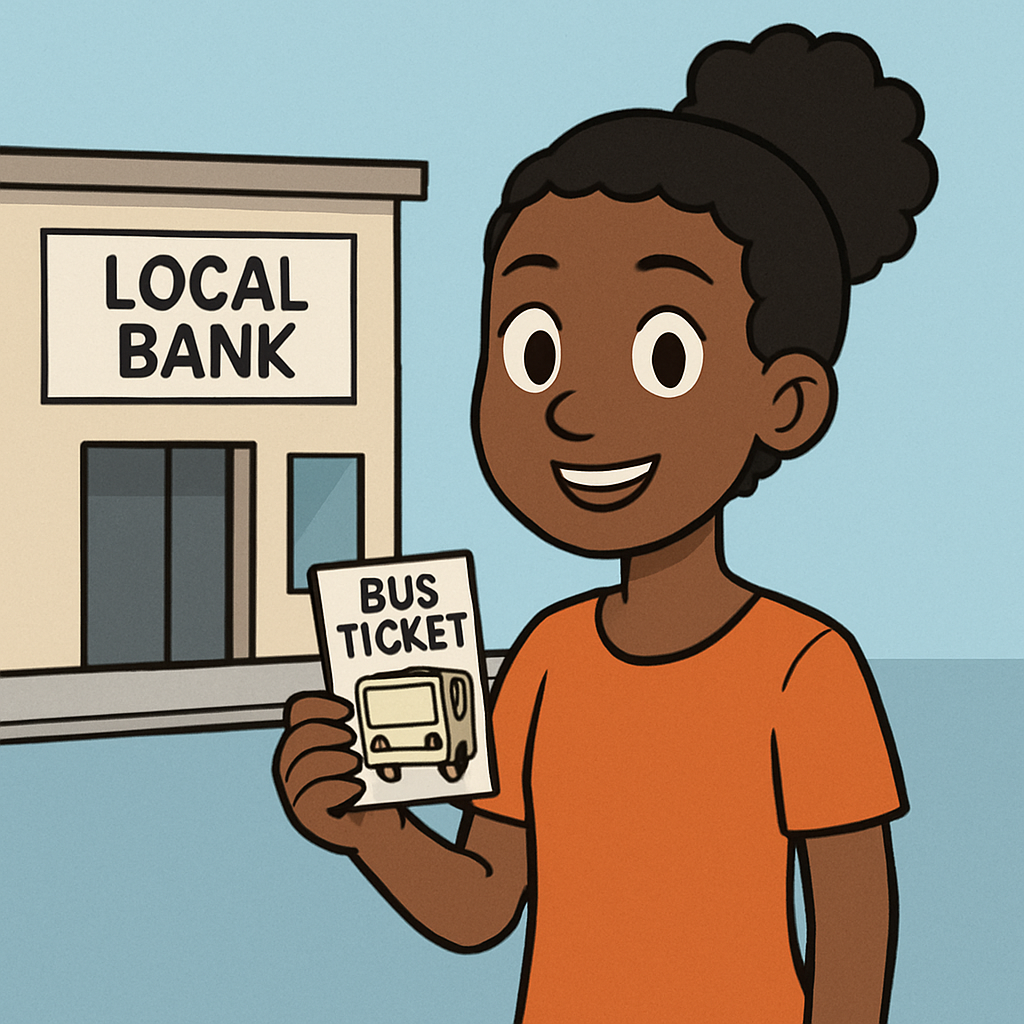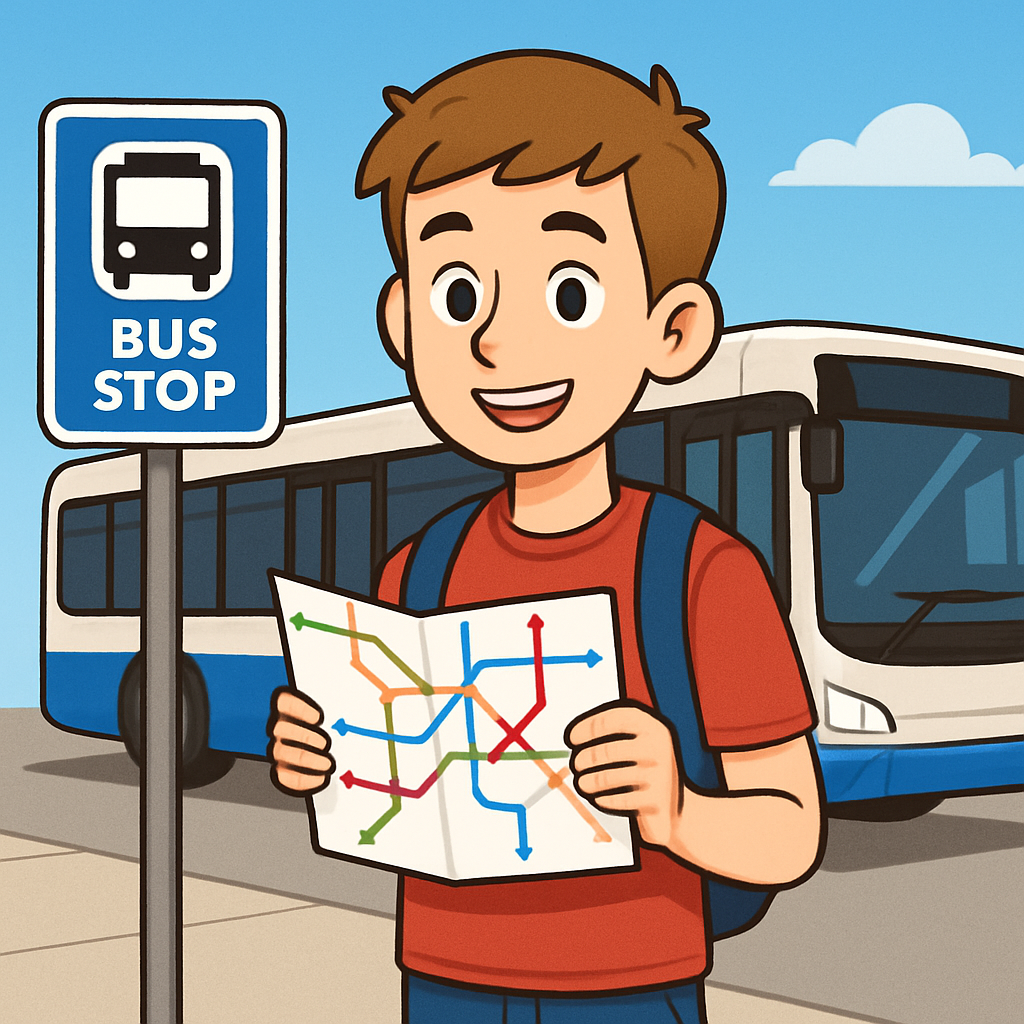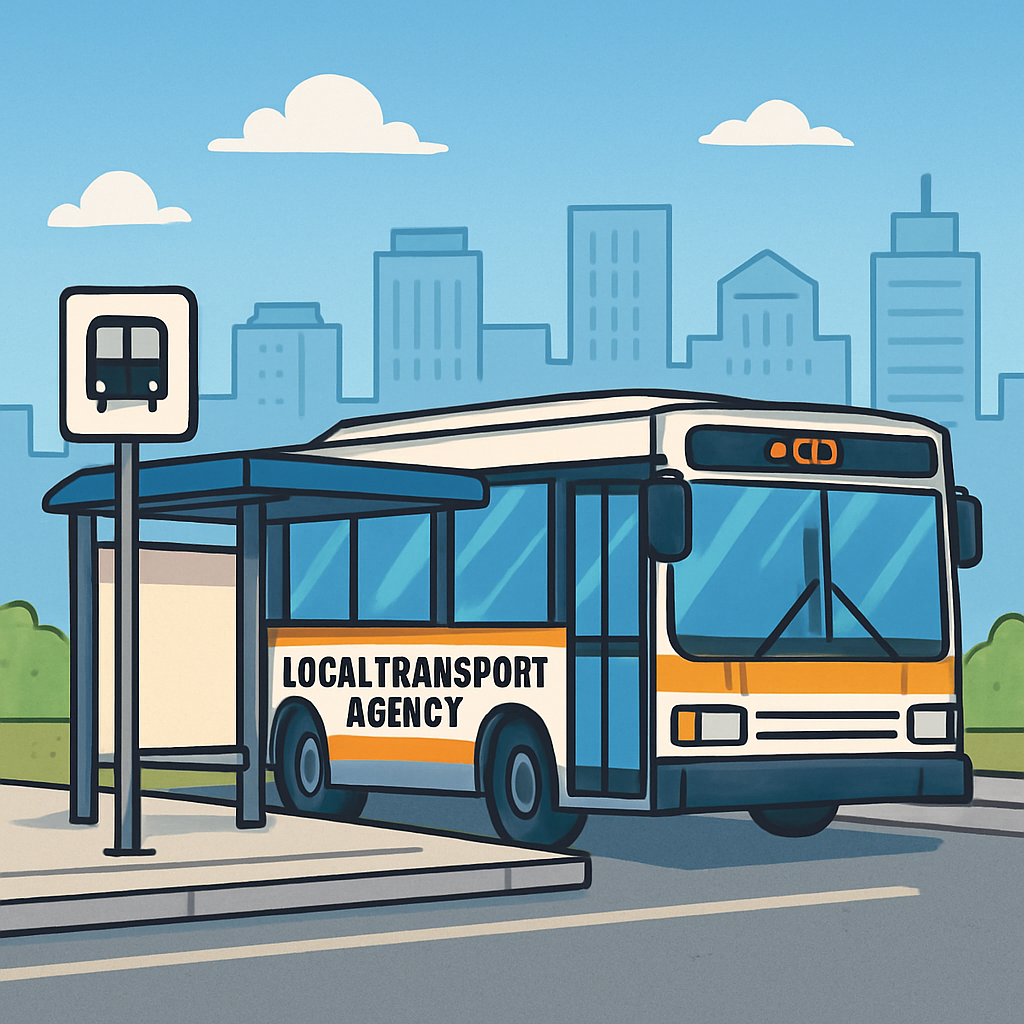 In this lesson, you will explore local agencies and institutions that provide essential services in your area, focusing on transport and financial institutions. This will help you understand how these organisations support daily life and the local economy as you prepare for the world of work.
In this lesson, you will explore local agencies and institutions that provide essential services in your area, focusing on transport and financial institutions. This will help you understand how these organisations support daily life and the local economy as you prepare for the world of work.
By the end of this lesson, you will have:
 Transport agencies are organisations that manage and provide public transportation services, such as buses, trains, and ferries. They ensure people can travel safely and efficiently for work, school, and leisure. In Ireland, these agencies are crucial for connecting communities, supporting economic activities, and reducing traffic congestion by promoting sustainable travel options like public transport and cycling.
Transport agencies are organisations that manage and provide public transportation services, such as buses, trains, and ferries. They ensure people can travel safely and efficiently for work, school, and leisure. In Ireland, these agencies are crucial for connecting communities, supporting economic activities, and reducing traffic congestion by promoting sustainable travel options like public transport and cycling.
Examples include:
 Now, it's time to dive deeper into researching the main transport agencies in your local area. This will help you understand how these organisations keep your community connected and support everyday activities like getting to school, work, or leisure. Use reliable online resources to find out which organisations provide bus, train, ferry, cycling, or other transport services near you. Think about how these services might affect your future, such as commuting to a job or even potential career paths in transport.
Now, it's time to dive deeper into researching the main transport agencies in your local area. This will help you understand how these organisations keep your community connected and support everyday activities like getting to school, work, or leisure. Use reliable online resources to find out which organisations provide bus, train, ferry, cycling, or other transport services near you. Think about how these services might affect your future, such as commuting to a job or even potential career paths in transport.
Start by visiting the Transport for Ireland website: Transport for Ireland. Use their search tool to look for services in your county – for example, enter your town or county name and explore bus routes, timetables, or maps. Next, check your local council's website (e.g., search online for 'Kerry County Council transport' or replace with your own county). You can also explore the National Transport Authority: National Transport Authority, which has information on planning and funding for local transport. If you're in a rural area, look specifically for Local Link services, or if near a city, check for urban bus or rail options.
To make your research thorough, note down not just the names but also key details like the types of services (e.g., daily bus routes, weekend trains), areas they cover, and any unique features (e.g. student discounts). This will give you a clearer picture of their role in your community.
Task: List at least four main transport agencies or services in your local area. For each, note a brief description of what they provide, including one way they support the local economy or daily life (e.g., Local Link buses connecting rural villages to towns, helping people access jobs and shops).
Spend about 15 minutes on this task. Jot down your list in a notebook or digital document for reference later.
 Financial institutions are organisations that provide banking, lending, and financial advice services to individuals and businesses. They play a key role in managing money, offering loans for homes or businesses, providing savings options, and supporting economic growth by helping money circulate in the community. In Ireland, these institutions are essential for everyday needs like paying bills, saving for the future, or starting a business, and they contribute to the local economy by creating jobs and enabling investments.
Financial institutions are organisations that provide banking, lending, and financial advice services to individuals and businesses. They play a key role in managing money, offering loans for homes or businesses, providing savings options, and supporting economic growth by helping money circulate in the community. In Ireland, these institutions are essential for everyday needs like paying bills, saving for the future, or starting a business, and they contribute to the local economy by creating jobs and enabling investments.
Examples include:
 Now, it's time to dive deeper into researching the main financial institutions in your local area. This will help you understand how these organisations support everyday financial needs, like saving money, getting loans, or managing bills, and how they contribute to the local economy. Think about how these services might affect your future, such as opening a bank account for your first job or even potential career paths in finance.
Now, it's time to dive deeper into researching the main financial institutions in your local area. This will help you understand how these organisations support everyday financial needs, like saving money, getting loans, or managing bills, and how they contribute to the local economy. Think about how these services might affect your future, such as opening a bank account for your first job or even potential career paths in finance.
Start by visiting the Credit Union Ireland website: Credit Union Ireland. Use their branch locator to search for credit unions in your county or town – for example, enter your postcode or area name to find nearby options. Next, explore bank websites like AIB or Bank of Ireland, and check for local branches using their 'find a branch' tools. Don't forget An Post for postal banking services: visit An Post and look up post offices in your area that offer financial services. If relevant, search for building societies or other local lenders via a general online search like 'financial institutions in [your county]'.
To make your research thorough, note down not just the names but also key details like the types of services (e.g., savings accounts, loans, money transfers), areas they serve, and any unique features (e.g., community-focused loans). This will give you a clearer picture of their role in your community.
Task: List at least four main financial institutions in your local area. For each, note a brief description of what they provide, including one way they support the local economy or daily life (e.g., Local Credit Union offering low-interest loans to members, helping people afford homes and boosting community spending).
Spend about 15 minutes on this task. Jot down your list in a notebook or digital document for reference later.